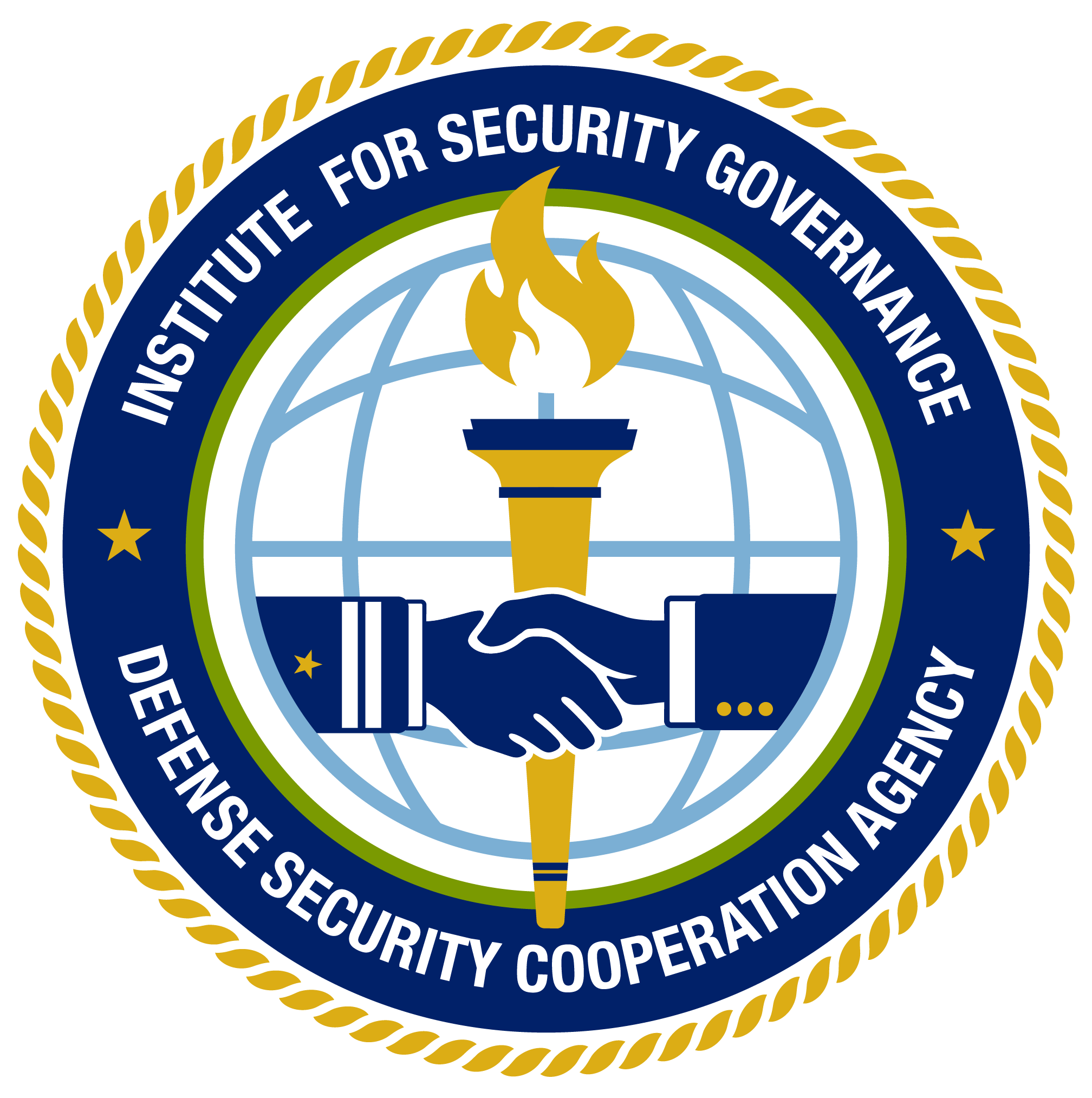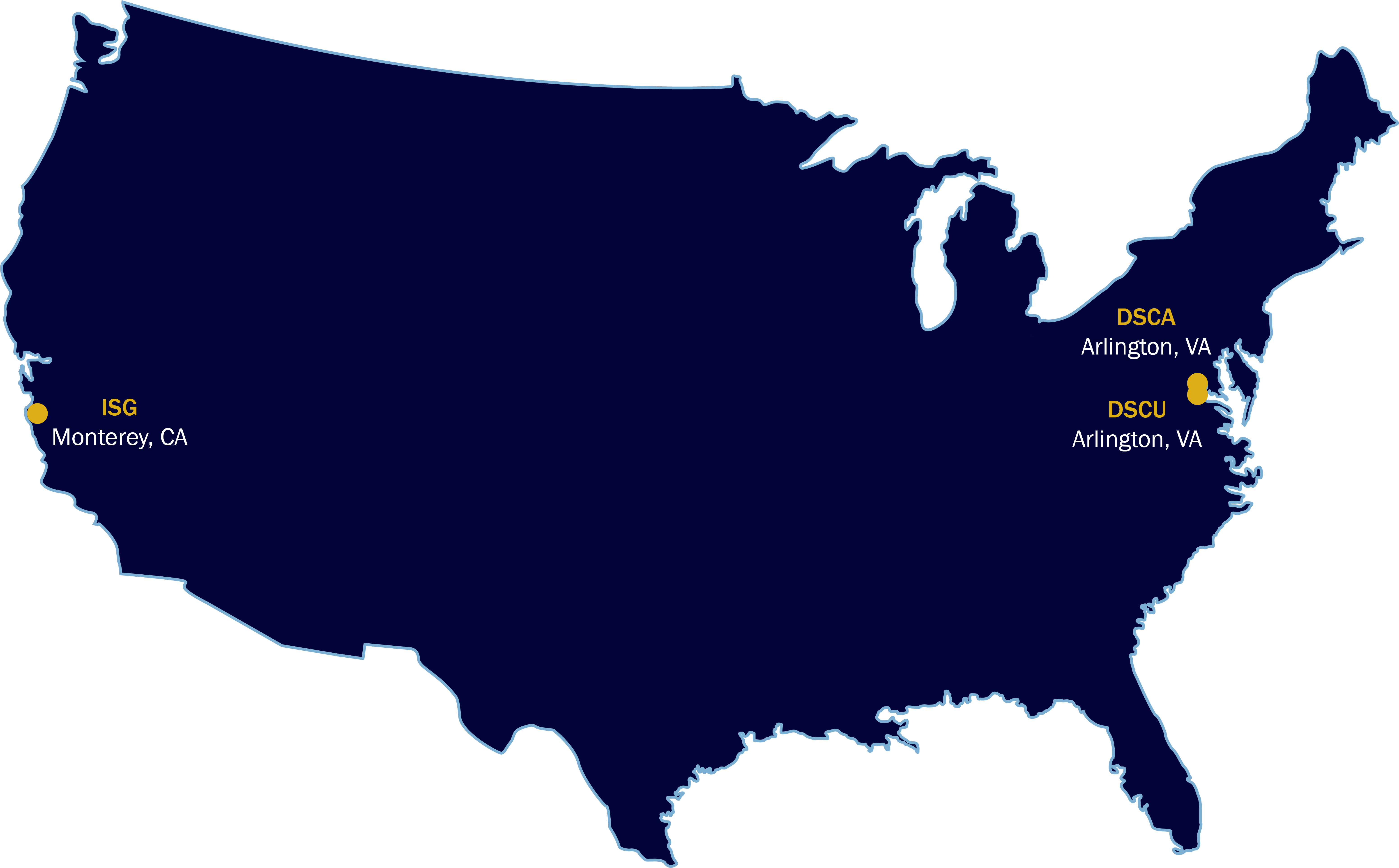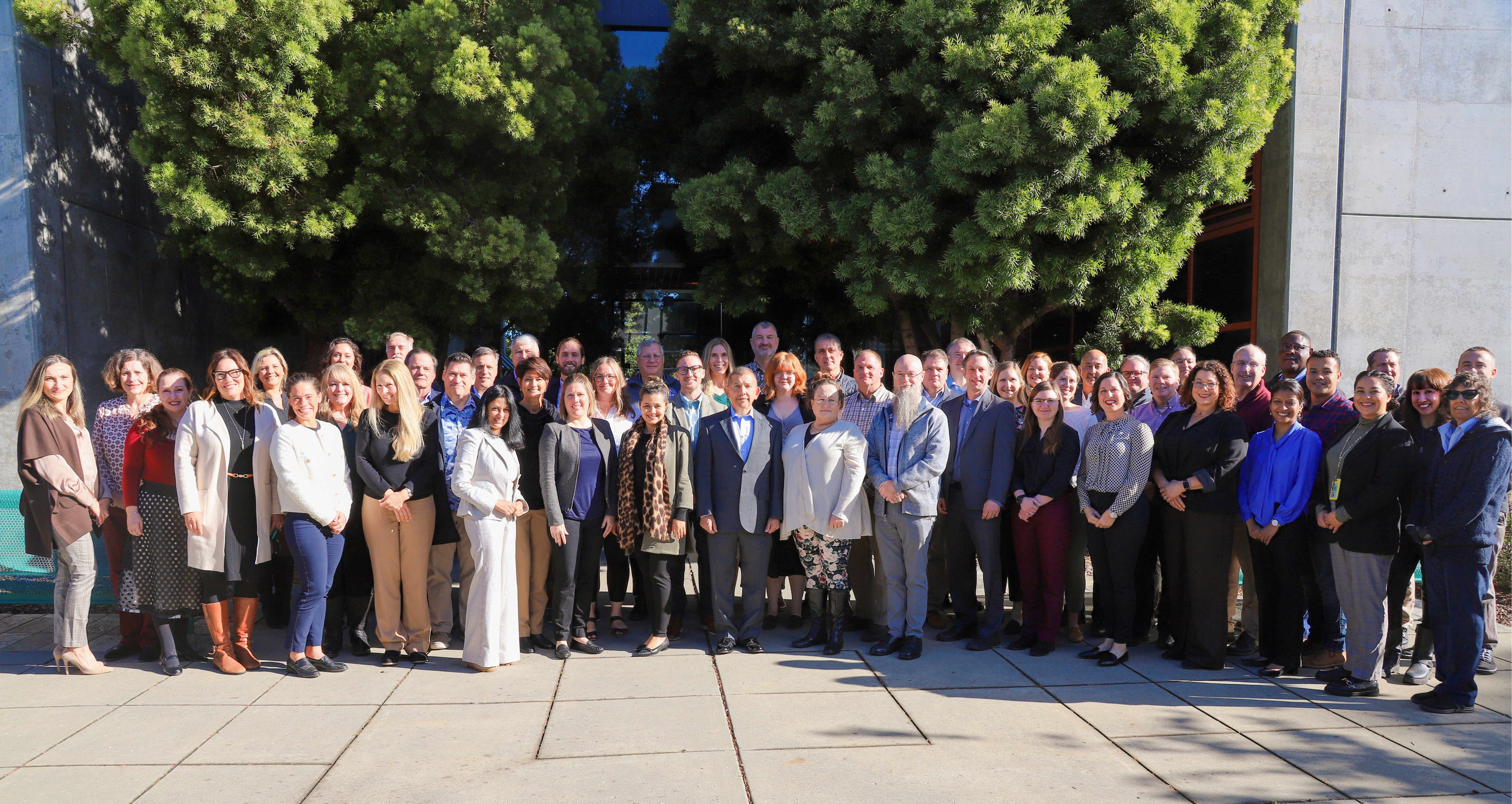About the Institute - Defense Security Cooperation University
Strengthen the institutional capacity of partners and allies’ security sectors to advance U.S. national policy interests and address shared security challenges.
Promote and advance American values, interests, and objectives through the development, integration, and advancement of the field and practice of Institutional Capacity Building.
Our Structure
Established in April 2019, ISG is headquartered in Monterey, CA, co-located on Naval Support Activity Monterey, with personnel based at the Defense Security Cooperation University (DSCU) campus in Arlington, VA, near geographic combatant commands, and at other locations throughout the United States. As a component of the Defense Security Cooperation Agency (DSCA), ISG is the Department of Defense’s leading implementer for Institutional Capacity Building and one of its primary international schoolhouses.
ISG Team
The ISG team is comprised of civilian government faculty and staff, and a contract support team of over 110 personnel. It is augmented by a robust group of adjunct faculty and a team of subject matter experts drawn from the military, government, industry, academia, and non-governmental organizations.
Our Symbols
Get to know the bold and bright ISG logo by hovering over the list of elements at right. Each component of this key symbol reveals a little more about the ideals and standards that guide our work.
Seal
This is the official seal of The Institute for Security Governance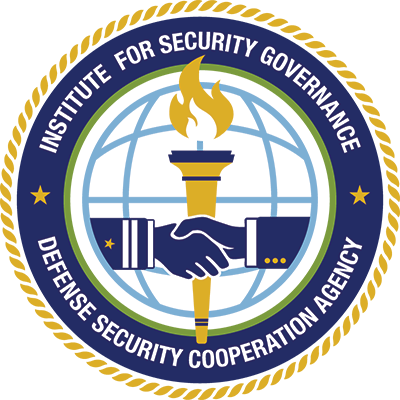
Rope
The rope illustrates the binding ties that result from effective and continuing partnership.
Rings
The green ring signifies land and amphibious forces and the blue ring indicates sea and air forces, epitomizing a strong defense for the United States and our partners.
Stars
The gold stars indicate excellence in implementing the ISG mission.
Sphere
The sphere represents ISG's global reach, while the light blue color signifies the US Department of Defense.
Sleeves
The military and civilian detail on the sleeves expresses civil-military relations and military professionalization. This detail serves as an acknowledgement of the ISG mission and a tribute to our history as the Center for Civil-Military Relations.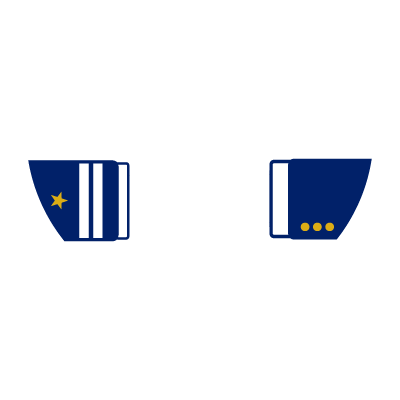
Hands
The handshake stands for new and enduring partnerships built each day by the ISG team.
Torch
The gold on the torch exemplifies honor of the mission and the dedication of all personnel within the Institute. The torch is an emblem for illuminating the path: guiding others to find a way forward for themselves.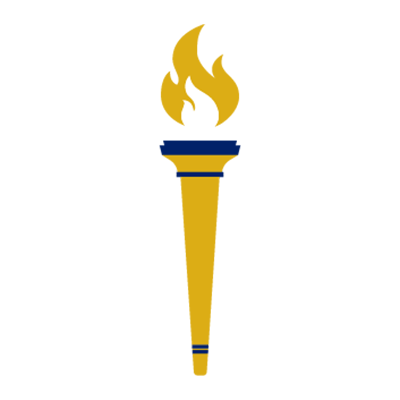
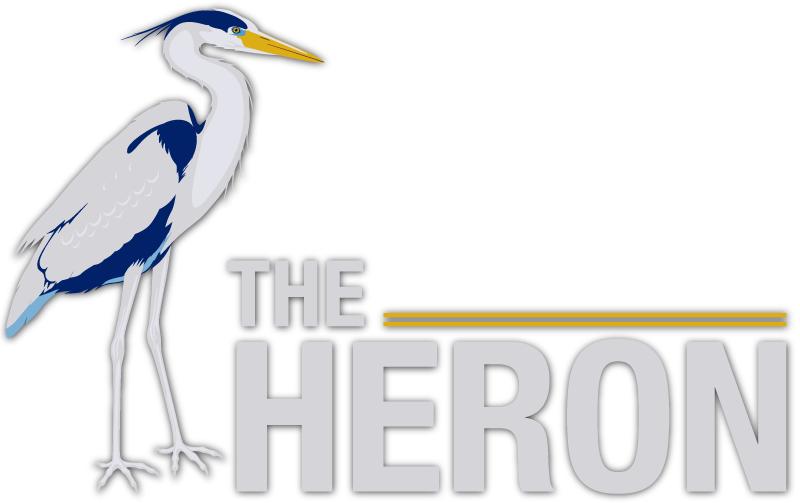
Our Foundation
Prior to 2019, ISG was known as the Center for Civil-Military Relations (CCMR). Founded in 1994 as an academic center at the Naval Postgraduate School, CCMR was designed to strengthen civil-military relationships in democracies worldwide. Over its 25-year history, CCMR proved itself responsive to civil-military challenges and adaptive to the changing global security landscape. Alongside partner nations, CCMR engaged on complex issues such as defense transformation, stability and support operations, peacekeeping, combating terrorism, acquisition and resource management, maritime security, and defense governance and management.
Former CCMR Director Richard Hoffman played an integral role in shaping CCMR. Joining the team as a faculty member in 1996, Richard made a direct impact on the lives of many faculty, staff, students, and partners as a leader, mentor, colleague, and friend. The legacy of his directorship, service, and commitment to the CCMR mission endures in the work of ISG.

